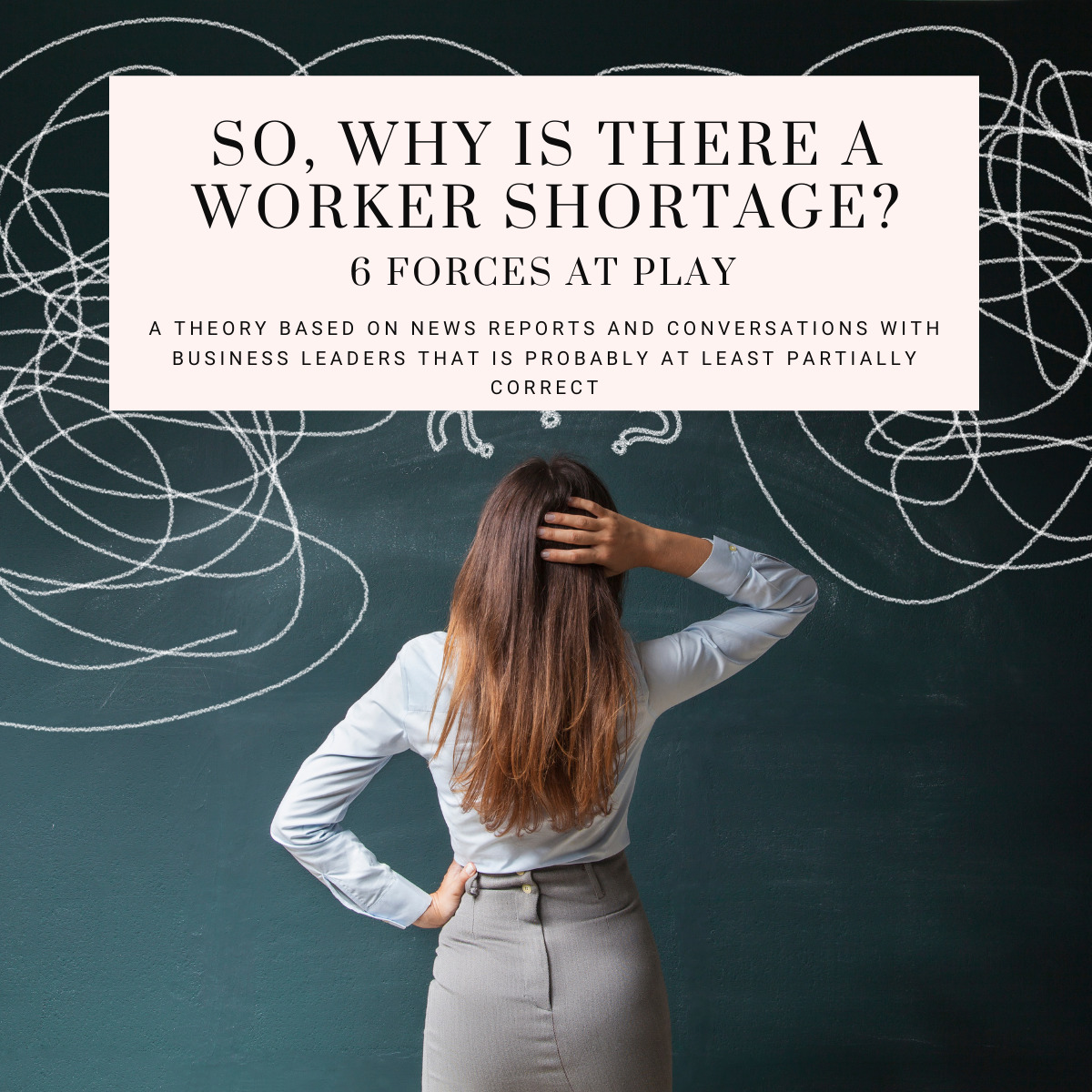So, Why is There a Worker Shortage?
Speaking with over 100 Colorado business leaders in 2021, the most puzzling challenge they deal with is the shortage of workers. Common refrains: “I don’t get it – where ARE THEY? Where did they GO?”

I was curious so I read, pondered, listened… and I’ve developed a theory:
Six forces we’ve all been hearing about have in aggregate and in varying markets, caused a shortage across the economy:
- Older worker exits. Covid-related job stress and complexities combined with either or both of a) getting used to not working and/or b) strong financial portfolio performance.
- Young investors who don’t need a job. Who was buying crypto before Covid? Younger workers tossed in a few hundred or a few thousand dollars now worth hundreds of thousands, even millions of dollars. Why work a J-O-B?
- Working not worth it for lower wage earners. Compounding real challenges including securing affordable daycare, reduced mass transit schedules, less affordable housing options within a reasonable commute all make working less attractive, perhaps particularly for a 2-worker household where only one returns.
- Government payments. Daniel Henninger of the WSJ writes that “transfer payments suppressed work-response patterns across labor markets.” That’s what I hear from employers too.
- Shift to self-employment. The Wall Street Journal on Nov 30th reported that self-employment rose 500,000 since the start of the pandemic. Of course, some of the self-employed still have regular jobs… still, that’s a lot of people trying not to be an employee.
- Competition in high-demand sectors. Heightened need for nurses during Covid, Amazon and others hiring over one million logistics workers, the tech industry trying to hire tens of thousands in areas like security and cloud technology.
I’m not an economist, and I don’t know to what extent each contributes to the shortage in different sectors, or how long the shortages will last. So, what are leaders doing? Right now, their answer starts with paying more and we’re seeing wage inflation broadly reported. As Ray Dalio says in his newest book, Principles for Dealing with The Changing World Order, “…what you are reading is a work in progress.”
